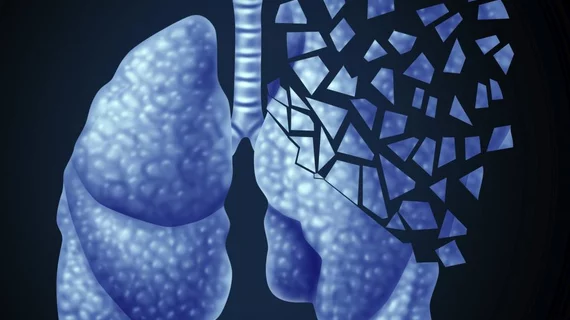How a short video and brochure can boost lung cancer screening
Pairing an informative video with a brochure outlining the possible harms and benefits of low-dose CT lung cancer screening bolstered smoker’s and former smoker’s confidence in their decision to undergo screening, reported authors of a recent study published in the Annals of the American Thoracic Society.
Sam M. Janes, MBBS, PhD, of the University College London, and colleagues created and showed a 5.5-minute video and provided an educational brochure to 229 participants in the U.K. Lung Screen Uptake Trial (LSUT). All patients met one of three criteria for CT lung screening, including one established by the U.S. Preventative Task Force.
The goal of the study, according to Janes et al., was to determine if their education tools could facilitate a discussion between patients and their physicians that would result in shared decision-making, a requirement for receiving Medicare and Medicaid reimbursement in the U.S.
“We used feedback from other patients eligible for lung cancer screening to create a film that individuals from a variety of educational backgrounds could understand and that presented the information in a clear, simple and palatable manner," Janes said in a news release.
Overall, participants who watched the video or read the booklet were equally likely to undergo CT screening, and more than three in four chose to do so. Each tool also improved patient scores on a test that evaluated their knowledge of CT lung screening facts.
The real improvement was seen in those who watched the video and read the pamphlet. For that group, mean scores increased by 7.2 percentage points on the subjective test and improved by 3.2 percentage points on the self-assessment test, compared to those who only read the brochure.
Patients who took experienced both educational materials also were more confident in their choice to receive screening, claiming a certainty level of 8.5 out of 9, compared to 8.2 in the brochure-only group.
Fewer than 2% of the 7.6 million former smokers in the U.S. who are eligible for the screening undergo the CT scan even though it has been shown to reduce lung cancer mortality by 20 percent, according to the authors.
“There is an urgent unmet need to provide information to individuals considering lung cancer screening, but for this to be done in a non-intimidating, friendly and simple way,” said Mamta Ruparel, MBBS, PhD, with the Lungs for Living Research Center at University College London, in the same release. “This study demonstrates that an information film can enhance shared decision-making, while reducing the conflicted feelings patients may have about undergoing the procedure without reducing low-dose CT screening participation.”

